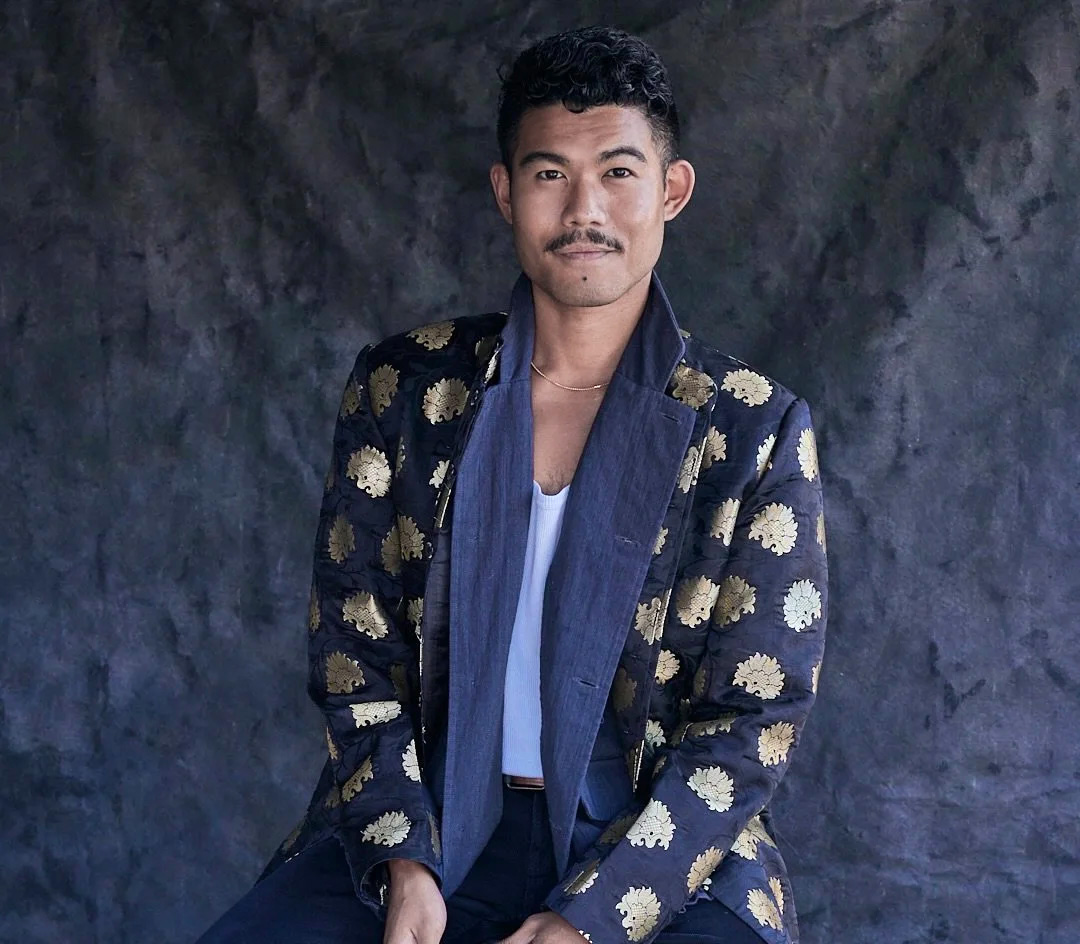
Interview with Ely Sonny Orquiza, Director of Free Shakespeare in the Park’s The Two Gentlemen of Verona
August 13, 2025
Photo courtesy of the Director

Director Ely Sonny Orquiza shares some of his perspective on acting, directing, Shakespeare , and “The Two Gentlemen of Verona.”
INTERVIEW
SF Shakes: How would you say your experience as an actor informed your directing process and vice versa?
Orquiza: I trained as an actor earlier on, and I did contemporary and classical works which really helped me expand my imagination and gain the vocabulary to be in conversation with artists. I think that those tools helped me as a director to be able to share the same language with actors and really help deepen and inform my work in a beautiful way. It helped me understand the story so much better. It allowed me to have more accessible and easier conversations with artists and actors, who are helping tell the story.
SF Shakes: Would you say there is sometimes a barrier between directors and actors?
Orquiza: I think when an actor is working with a director who has not been on stage, tools, techniques, and different approaches to performance may differ. Sometimes the director may not have the tools or the language to ask for what they want, so that miscommunication may be a problem that could happen, or could exist in the rehearsal room. There’s definitely multiple barriers.
Having that background as an artist has provided me some sort of clarity to asking each individual actor what I want, how it will translate on stage, and having the vision really be taken from a place of understanding.
SF Shakes: What has your experience been directing contemporary theater versus classical theater, like Shakespeare?
Orquiza: I do a lot of new works, so a lot of the contemporary theater that I do is in relation to Asian American stories and queer stories — really championing stories from the global majority. For me, working on contemporary works is very political, very social, and very cultural, and what’s exciting about it is that I’m in a space where I’m constantly playing with form, playing with style.
In a classical text, it’s a very straight playing. For Shakespeare, what I love about it is that I’m putting my contemporary sensibilities to it. As part of my work as the director, I’m constantly subverting the classical language and making it my own and putting my cultural, political, and social spin on it so that it feels immediate to the audience members.
SF Shakes: How do you approach a text at the beginning of your directing process?
Orquiza: I think for me, regardless of what play it is, I try to read it multiple times and really continue to understand what the playwright’s point of view is, and why they’re telling the story. That’s always been my question of, why tell this story, why tell this now, and who is this for? That always informs the way I direct and the way I envision the worlds of the plays.
For The Two Gentlemen of Verona, same question. Why tell this story now? And part of the exciting thing about [the play] is that no one has done it for over a decade.
SF Shakes: It’s not a popular play.
Orquiza: It’s not popular because of the messy ending. Part of me and my sensibility as the director is, how do we own that and how do we make it our own without shying away from the text? I think for me, just asking questions helps inform my process as a director. Reading the play and imagining its world through a contemporary lens makes it more impactful for the audience and stokes questions and curiosity, or even challenges people’s perspectives.
I’m one of those directors who, you know, I don’t just make art to make art. I make art to really shake the ground because, right now, especially, it’s such a privilege to tell a story. Storytelling is a powerful tool.
SF Shakes: What story are you trying to tell through The Two Gentlemen of Verona?
Orquiza: One of the biggest [parts] is reclaiming agency. Part of the theme of The Two Gentlemen of Verona is a story of migration. These two men who travel and leave their hometown for a new city is such an American experience; everyone’s constantly moving from one place to another, so there’s always that migratory experience and storytelling there.
But part of it is that in Shakespeare’s world, and especially in our world, a lot of women or female characters have no agency. And for this particular play there was an attempted sexual assault towards the end of the play, and immediately after that there’s an apology and a forgiveness. A lot of the audiences will come to see that after that violence, no female characters speak. For us, and for me as a director, I’m trying to explore how silence becomes a tool and an agent of change for female characters and how they own that as a form of power.
I’m also hoping that, in telling this story, we shine a light on how we can reclaim agency and provide women and female characters more agency in this archaic text. But, also, it’s a family friendly play and children will come to see the show, so part of the entire deal is seeing that on stage, but also saying that you don’t have to go back to your abuser and having that set an example for younger audiences.
SF Shakes: What was your intention behind setting the play in the Midwest and then having the characters migrate to California? What did that represent for the characters and also for you as a director?
Orquiza: I think being a Bay Area native and growing up in San Francisco, I’ve always seen California as the Golden State that everyone loves to go to, but because of our current political time there has been a lot of demonization of California, and San Francisco in particular.
I think there’s something about us being a donor state to other states in the United States, and just tying in this idea that we are all living under one country, and that there are a lot of cultural differences that [are shown] from our Midwest to our California. There’s so many differences — race, status, religion, gender, and sexuality — in that, looking from that perspective and lens, [we see] the stark difference in geography, and how migration can inform people’s behavior.
SF Shakes: What purpose does The Two Gentlemen of Verona, and Shakespeare more broadly as a whole, serve in our current political and social climate?
Orquiza: I think Shakespeare has done such an amazing job in really doing a lot of political and social commentary of his time that continues to seep into our everyday lives. Something that’s so powerful about Shakespeare is that you can continue to imagine and reimagine his world and his text, making it so relevant for our current period. He explores the human condition really well, and I think that helps us capture where we are now and where we could be. There’s a meditation in Shakespeare’s world about [that] humanity. I think we can always learn from Shakespeare as long as it’s handled in a careful way.
RECENT POSTS